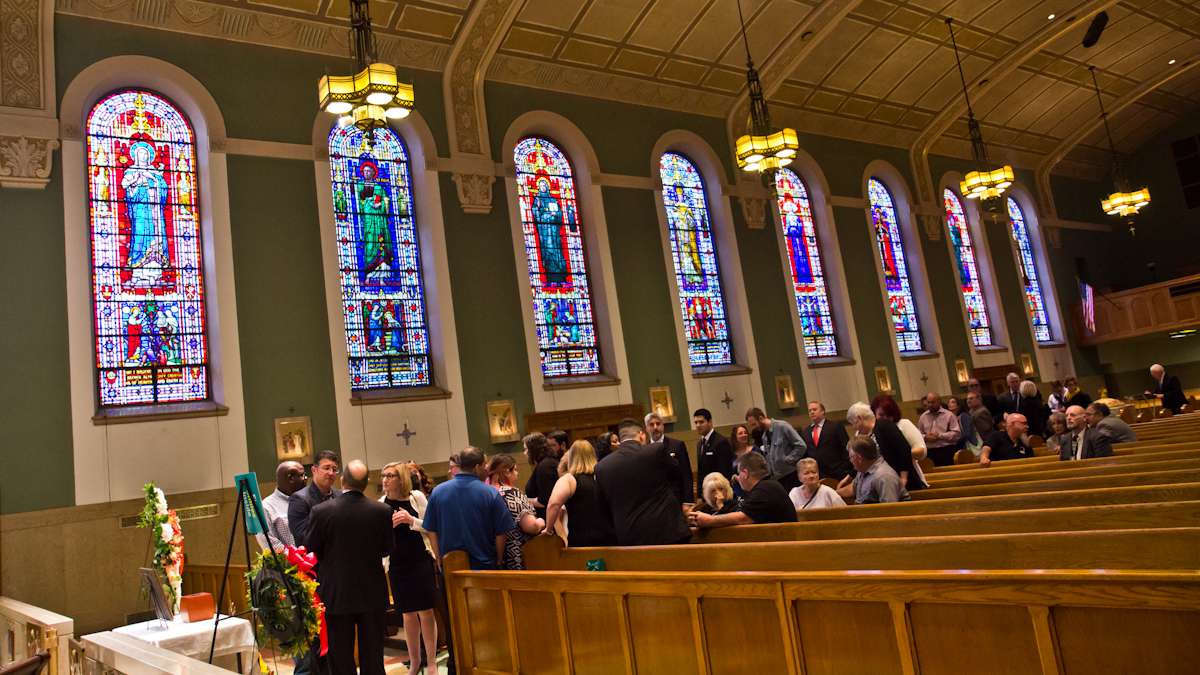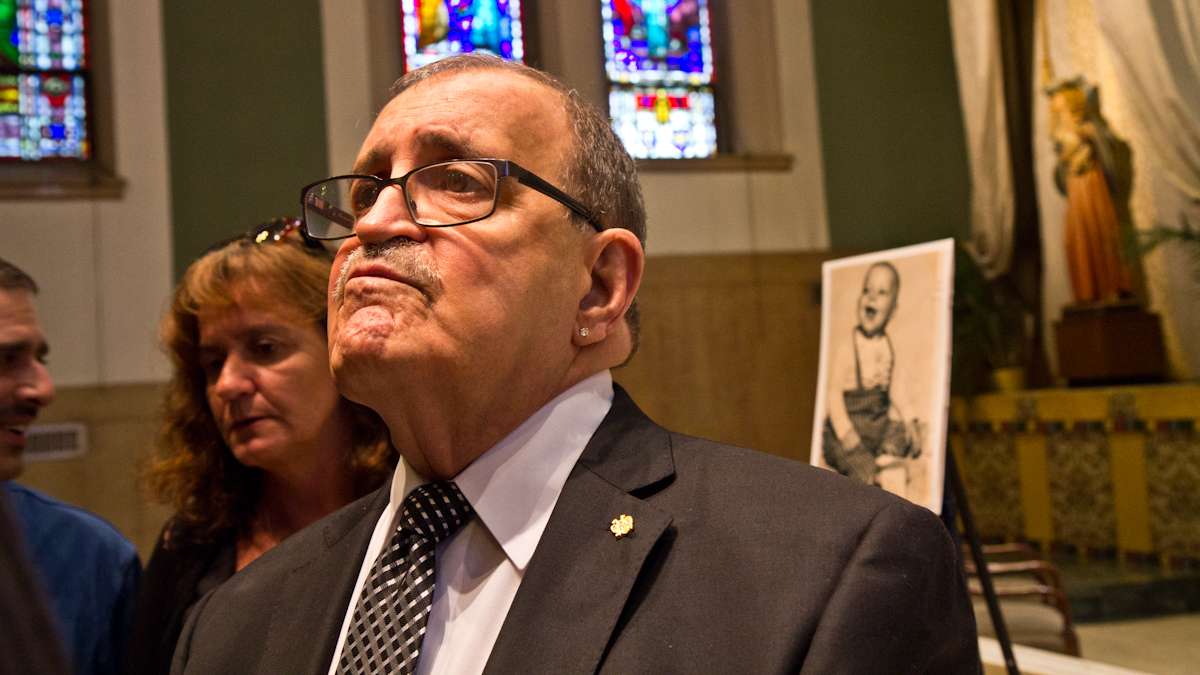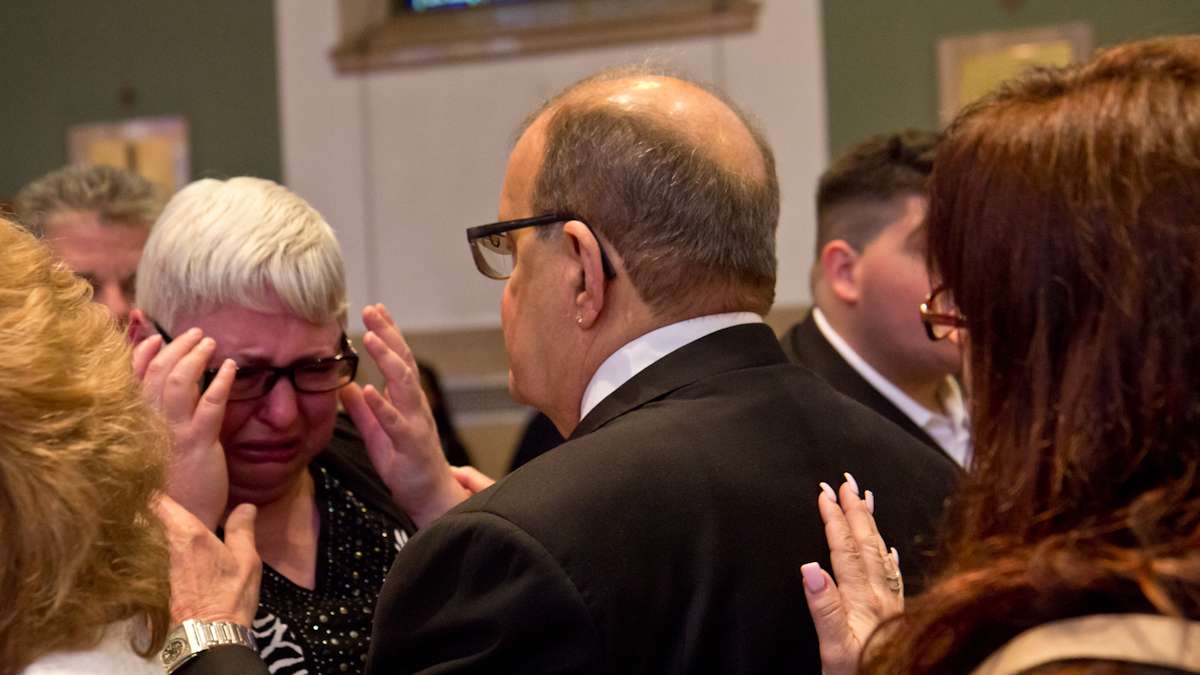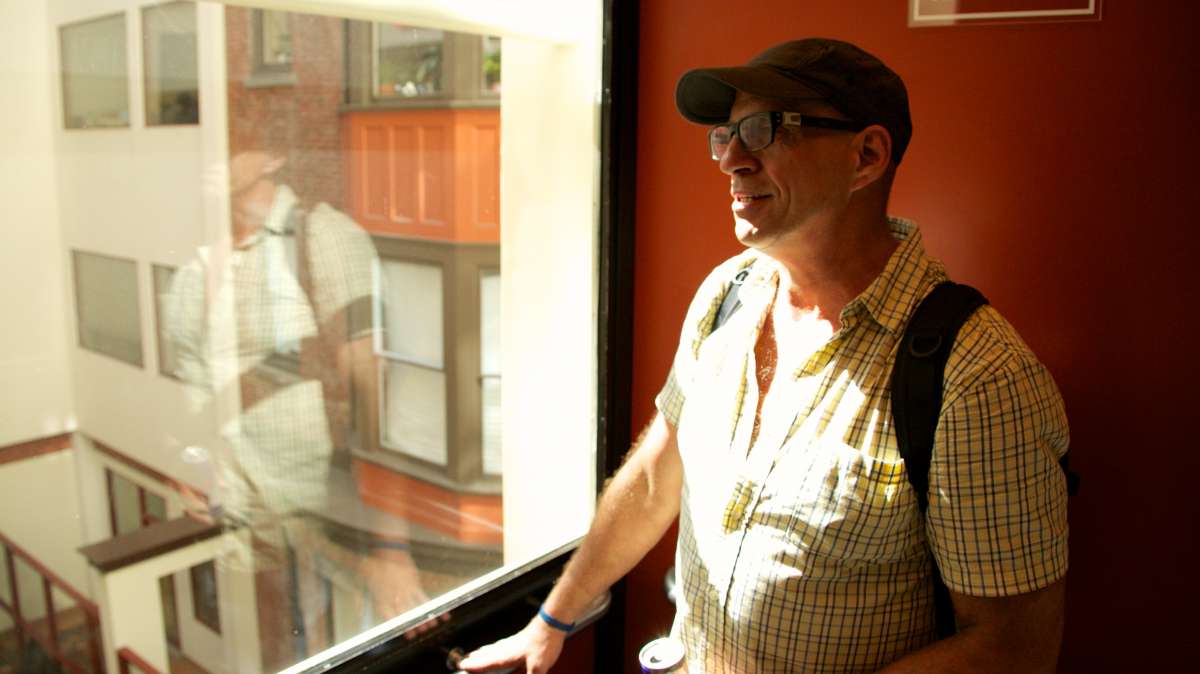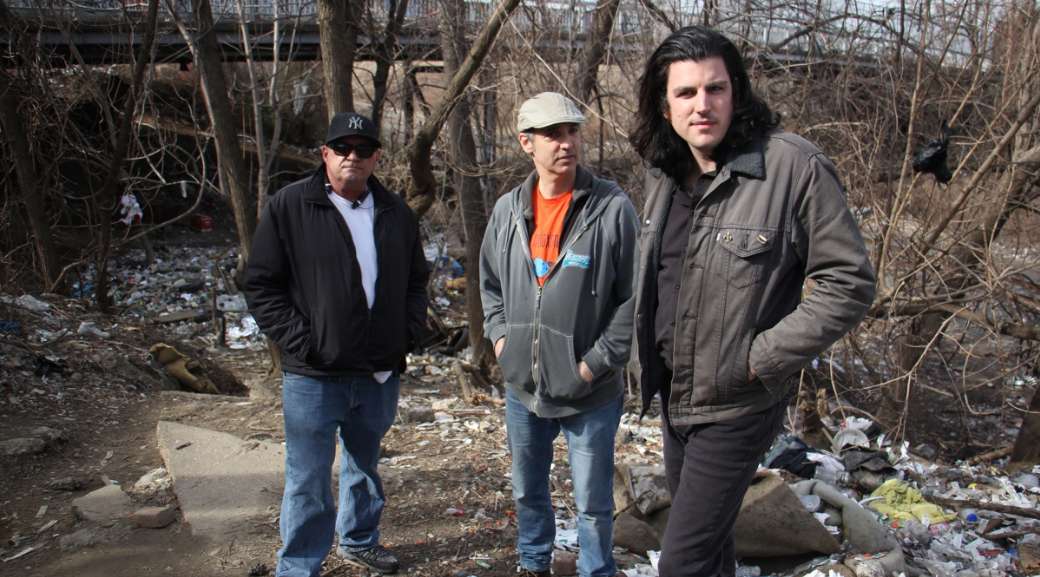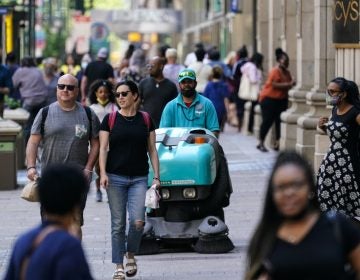Community mourns unexpected death of overdose prevention activist
ListenPeople trying to prevent more opioid overdoses in Philadelphia are reeling from the unexpected death of Paul Yabor, 55, a longtime local and national activist. Yabor spent decades advocating for the rights of those affected by HIV, hepatitis C and addiction. And for him, the struggle was personal.
“He was willing to share a large part of the little he had with other people,” said Yabor’s father, Raymond Yabor, before a memorial service at St. Timothy’s Cathedral in Philadelphia on Friday.
Paul Yabor was born and raised in Philadelphia. His struggle with drugs and alcohol began in the 1980s. During that time, he was diagnosed with AIDS in prison, and later Hepatitis C. He was told to get his affairs in order, but instead, spent the decades that followed fighting back, using his own experience to become an advocate for others.
“Paul was an extraordinary activist,” said Dr. Stacy Trooskin, director of viral hepatitis programs at Philadelphia FIGHT. “Through his lived experience, he used that passion to help as many people as he could.”
As a member of Act-Up, and many other groups, Yabor lobbied for the rights of those with HIV and AIDS and for the expanded access to new drugs that could cure Hepatitis C. He helped lead the campaign to create Philly’s land bank, and he was a major figure in the harm reduction world, advocating for needle exchanges and other services for people who use drugs.
“Most of my demons that have almost destroyed me, I’ve gone back and done my best to defeat them, not only for myself but for my community as well,” Yabor told WHYY in 2014. “That’s a big part of my life.”
Most recently, he threw himself into overdose prevention, leading efforts to increase access to Naloxone, an overdose prevention drug, and advocate for a city-approved safe injection site. Touring through “El Campamento,” a stretch of rail tracks in North Philadelphia where many go to inject drugs, he told WHYY that instead of people coming here in secret and risk overdosing, a supervised injection site would have observers available to help if something went wrong.
“20 years ago, no one would say that there was going to be syringe exchange in the city. It took a grassroots effort and some people to take some risks to make that happen,” Yabor said. “Over 10 years ago, there was no naloxone on the street, and it took some grassroots initiative and some people to take some risks and to speak out to get that changed. We just see this — I see this — as a natural progress of those kind of initiatives.”
In part because of Yabor’s efforts, a recent citywide task force recommended exploring such a project but stopped short of endorsing it.
So it came as a complete shock for many last week, to learn that Yabor was found alone, near that very spot where he had helped others countless times.
He died of an overdose, according to the medical examiner’s office.
Family recalled Yabor’s excitement at having finally landed his own apartment that he was getting ready to move into.
“Paul died suddenly and unexpectedly due to the opioid epidemic here in Philadelphia and all over the world. As he would say, something needs to be done about it, so many people are plagued with this addiction and families that deal with it are heart broken,” said Lisa Hughes, his sister, during a eulogy.
Seventh District Councilwoman Maria Quiniones-Sanchez wrote up a City Council citation to honor him.
“He would often speak to the fact that we had to be where people were and not where we wanted to be, and that for some the journey was longer than others,” she said of Yabor after the service. “It’s people like him that through their struggles still manage to do a whole lot of good and educate those of us who were always uncomfortable with dealing with this.”
For Silvana Mazzella, with Prevention Point, a group Yabor has been involved with that runs a needle exchange, overdose prevention trainings and provides other health and social services, it’s hard to make sense of what happened. She said many are shocked, or even fearful, as the opioid crisis heightens.
“I think it makes people much more humble about how challenging addiction is, and how challenging recovery is,” she said.
For her and others, Yabor is also a reminder of all the work that needs to be done. Moving forward, a lot of people will be thinking of him while trying to change attitudes, improve policies and systems.
“It really tells me we need to break down stigma, we need to make it an open door when you are using, an open door when you relapse, and really support people, not be afraid when we see people struggling to say ‘hey, no judgment here. You look like you’re struggling, how can i help you?’ And I think a lot of us have a hard time sometimes doing that with people.”
WHYY is your source for fact-based, in-depth journalism and information. As a nonprofit organization, we rely on financial support from readers like you. Please give today.


